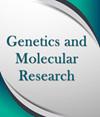外源丙酮酸减轻水分胁迫对花生基因型的不利影响
IF 0.2
Q4 GENETICS & HEREDITY
引用次数: 5
摘要
水分胁迫引发植物的各种细胞反应,改变正常的代谢流。丙酮酸是糖酵解途径的重要组成部分,直接参与细胞过程,触发影响耐旱性的基因。对拟南芥的研究表明,合成丙酮酸可以减轻干旱损害。研究了100 μM和5万μM外源丙酮酸对2个限水花生品种干旱胁迫的缓解作用。评价是基于生长、气体交换和光合速率分析。此外,还测定了超氧化物歧化酶(SOD)、过氧化氢酶(CAT)、抗坏血酸过氧化物酶(APX)和游离脯氨酸。总的来说,根据气体交换和水分利用的瞬时效率,外源施用丙酮酸有助于缓解水分胁迫对IAC Caiapó(对干旱敏感)的影响。根据胁迫植物中SOD(45%)、CAT(129%)和APX(60%)的测定,外源丙酮酸有助于恢复BR 1抗氧化酶的活性(耐旱性),并在50,000 μM下完全恢复。在脯氨酸处理下,两种品种均仅在100 μM处出现应力衰减;过量似乎对受压力的植物有负面影响,可能会影响细胞本文章由计算机程序翻译,如有差异,请以英文原文为准。
Research Article Exogenous pyruvate mitigates the detrimental effects of water stress in contrasting peanut genotypes
Water stress triggers various cellular responses in plants, altering normal metabolic flow. Pyruvate, an important component of the glycolysis pathway, is directly involved in cell processes, triggering genes that influence drought tolerance. Research with Arabidopsis has shown that synthetic pyruvate relieves drought damage. We evaluated the effects of exogenous pyruvate at 100 and 50,000 μM on mitigation of drought stress in two peanut cultivars submitted to water restriction. The evaluations were based on growth, gas exchange, and photosynthesis rate analyses. In addition, superoxide dismutase (SOD), catalase (CAT), ascorbate peroxidase (APX) enzymes, and free proline were also assayed. In general, exogenous application of pyruvate contributed to mitigate the effects of water stress in the cultivar IAC Caiapó (sensitive to drought), based on gas exchange and instantaneous efficiency of water use. Exogenous pyruvate contributed to restore the action of antioxidative enzymes in BR 1 (tolerant to drought), based on measures of SOD (45%), CAT (129%) and APX (60%) in stressed plants, and full recovery at 50,000 μM. When treated with proline, stress attenuation was found only at 100 μM in both cultivars; the excess seemed to have a negative effect on stressed plants, probably affecting the cell
求助全文
通过发布文献求助,成功后即可免费获取论文全文。
去求助
来源期刊

Genetics and Molecular Research
生物-生化与分子生物学
CiteScore
1.00
自引率
25.00%
发文量
7
审稿时长
3 months
期刊介绍:
Genetics and Molecular Research (GMR), maintained by the Research Foundation of Ribeirão Preto (Fundação de Pesquisas Científicas de Ribeirão Preto), publishes high quality research in genetics and molecular biology. GMR reflects the full breadth and interdisciplinary nature of this research by publishing outstanding original contributions in all areas of biology.
GMR publishes human studies, as well as research on model organisms—from mice and flies, to plants and bacteria. Our emphasis is on studies of broad interest that provide significant insight into a biological process or processes. Topics include, but are not limited to gene discovery and function, population genetics, evolution, genome projects, comparative and functional genomics, molecular analysis of simple and complex genetic traits, cancer genetics, medical genetics, disease biology, agricultural genomics, developmental genetics, regulatory variation in gene expression, pharmacological genomics, evolution, gene expression, chromosome biology, and epigenetics.
 求助内容:
求助内容: 应助结果提醒方式:
应助结果提醒方式:


